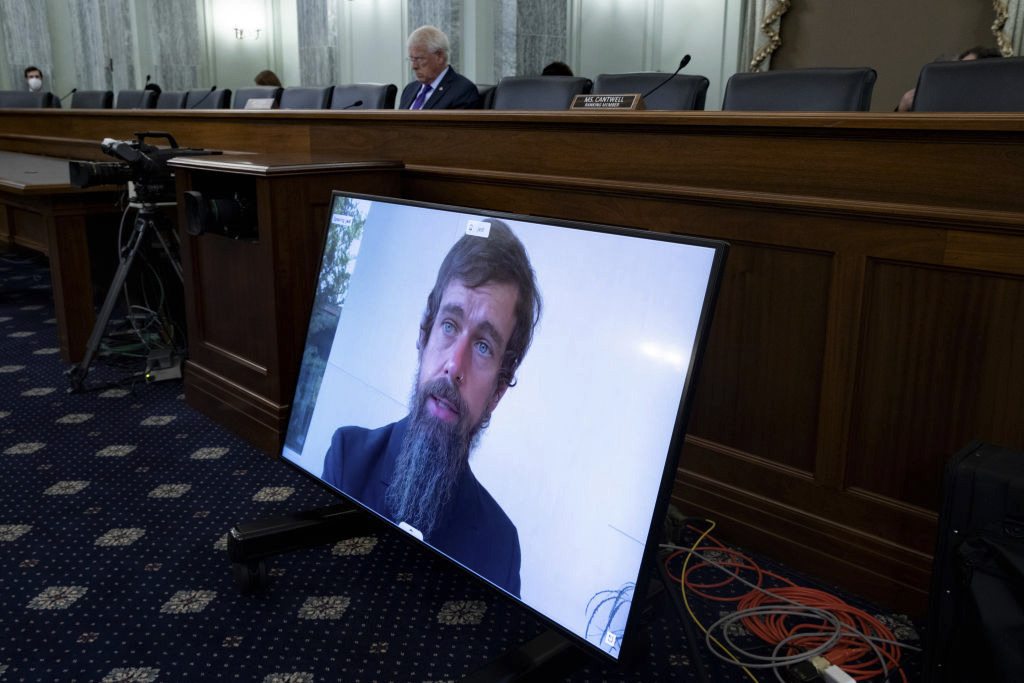How to Solve Big Tech Censorship: Un-Misread a Landmark Case
by John Kline • December 29, 2022 at 5:00 am
Republicans' first order of business this coming 118th Congress must be to introduce a legislative firewall between the White House — and its offshoot federal law enforcement agencies such as the Department of Justice and its offshoot, the FBI — and private social media companies.
The dissemination of news and the facilitation of public discourse is central in any democracy that allows genuine participation on the part of its citizens. Open public dialogue is a "public good", or something which, like clean air, benefits everyone equally and greatly.
Providers of public goods are generally regulated under common carriage laws. The Communications Act of 1934, for instance, allowed AT&T to enjoy monopolistic power over the public good it provided: the interconnecting of the American people by way of a unified, national standard for telephone communication.
In exchange for enjoying monopoly power, and to ensure that public goods truly remain beneficial to the public, special duties or restraints are generally imposed on such companies.
With companies such as Compuserve and AOL in mind, Congress sought to hand out special liability relief with the idea of promoting two public goods: an internet characterized by a wide dissemination and diversity of ideas; and an incentive system for platforms to create family-friendly environments.
Unfortunately, in the ensuing case law that has been built up in dealing with Section 230 of the 1996 Communications Decency Act, two giant, related problems have emerged, both involving a misreading of a landmark court decision: Zeran v. AOL.
The first problem is that what Congress intended when it comes to protecting social media companies from liability tied to defamatory messages posted on their platforms has been greatly expanded and now encompasses virtually any and all decisions regarding "content moderation", such as removing the accounts of epidemiologists with whom Dr. Anthony Fauci, the FBI, CIA, and possibly other federal agencies, might disagree.
The second problem is that the "good faith" condition Congress imposed on these companies to ensure against arbitrary or biased content-removal decisions has been completely erased. It is now never applied to social media companies at all.
Both problems can be traced to a misunderstanding and incomplete reading of Zeran v. AOL.
As a result, as Michigan State University law professor and former Commerce Department telecom official Adam Candeub writes, "social media platforms are now treated like they're above the law."
Thankfully, this can be easily changed, even at the regulatory level. Non-discrimination policies need not create a "wild west" scenario. To a large extent, people really do not need moderators to curate what they see on social media. They are free to do that themselves.
Removing the distortive "curators", editors, "fact-checkers" and middlemen from the information process -- and reaching people who previously have been sheltered from diverse opinions -- will likely not tear people apart. It might even help to bridge misunderstandings and fill in a few gaps. That, perhaps, is the ultimate public good.

The ongoing 'Twitter Files' revelations show that Republicans' first order of business this coming 118th Congress must be to introduce a legislative firewall between the White House — and its offshoot federal law enforcement agencies such as the Department of Justice and its offshoot, the FBI — and private social media companies. Last summer's revelations of government pressuring social media executives into blocking users not toeing the official line on COVID was as clear an example of unconstitutional "state action" as any. Courts have long ruled the government cannot pressure private entities, as an "agent of government," into censoring what itself cannot.
Facebook's Mark Zuckerberg disclosed to Joe Rogan in August 2022 that the FBI had warned him in October 2020 not to post information about what appeared to be Hunter Biden's laptop. As he stated at the time:

